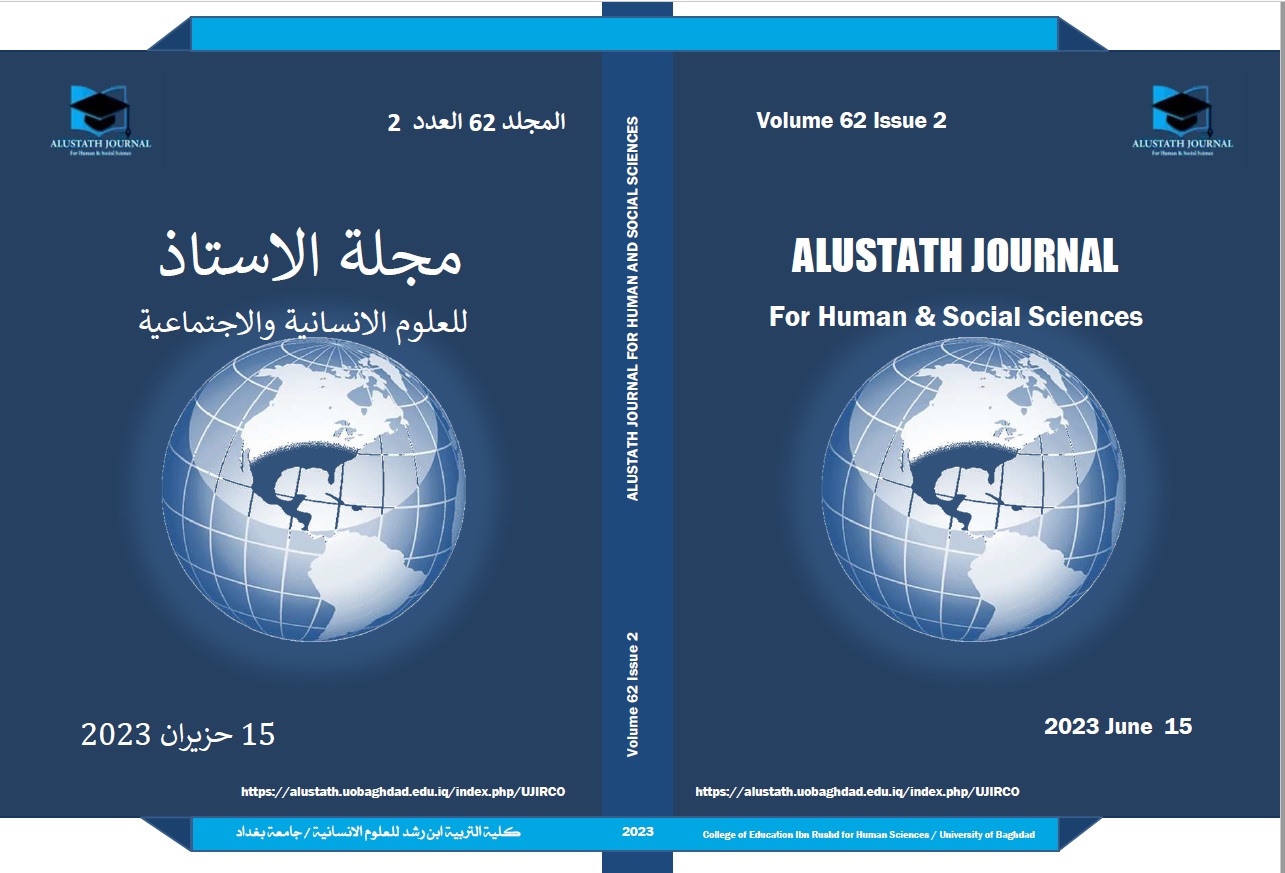English Intensifiers as Devices of Emotional Enhancement
DOI:
https://doi.org/10.36473/ujhss.v62i2.2091Keywords:
English intensifiers, emotional enhancement, emphasizers, amplifiers, downtoners, maximizers, boosters, compromizers, diminishersAbstract
Intensifiers are adverbials or adverbial phrases that are used to enhance the meanings of certain constructions. The study aims to investigate English intensifiers and their functions as devices of emotional enhancement .Moreover; they identify students with this grammatical item. The significance of the research is that intensifiers function as linguistic devices to maximize the meaning or, in a certain sense, intensify the emotional tone of words and expressions. Some commonly used intensifiers include very, too, at all, absolutely, extremely, really, wh-words or expressions, etc. e.g. what on earth are you doing? In terms of their semantic classes, intensifiers can be divided into Amplifiers, Emphasizers and Downtoners. The problem of this research is that the students find it difficult to comprehend the functions of English intensifiers. In terms of the method used in this research, the researcher tries to give a detailed analysis of the most common English intensifiers. An exercise relevant to the topic is adopted to enhance the research. The analysis of the results reveals that the third-year Iraqi college students succeed in operating intensifiers in a way that shows their ability to handle this grammatical item.
Downloads
References
• Bäcklund, U. (1973). The collocations of adverbs of degree in English. Uppsala: Acta Universitatis Uppsaliensis.
• Biber, et al. (1999). Longman Grammar of Spoken & Written English. Harlow: Longman.
• Bolinger, D. (1972). Degree words. The Hague & Paris: Mouton de Gruyter.
• Buchstaller, I. & Traugott, Elizabeth C. (2006). The lady was al demonyak: Historical aspects of Adverb all. English Language and Linguistics 10 (2), 345–70.
• Cacchiani, Silvia (2017). Cognitive motivation in English complex intensifying adjectives. Lexis, Journal in English Lexicology, [Online].
• Caffi, C. & Jenny, Richard W. (1994). Towards a pragmatics of emotive communication. Journal of Pragmatics, 22(3-4), 325-373.
• Close, R.A (1974). .A University Grammar of English: Workbook .Longman Group Limited.Essex.
• Huddleston, Rodney D., Pullum Geoffrey K. (2002). The Cambridge Grammar of the English Language. Cambridge: Cambridge University Press.
• Ito, R &Tagliamonte, S. (2003). Well weird, right dodgy, very strange, really cool: layering and recycling in English intensifiers. Language in society, 32, 257-279.
• Jing-Schmidt, Z. (2005). dramatized discourse: The Mandarin Chinese ba construction. Philadelphia: John Benjamins.
• Labov William. (1984). “Intensity”. In D. Schriffin (ed.) Meaning, Form and Use in Context: Linguistic Applications. Washington DC, Georgetown University Press.
• Méndez-Naya Belén (2008). Special issue on English intensifiers. English Language and Linguistics, 12, pp 213-219
• Méndez-Naya, Belén, (2003). On Intensifiers and Grammaticalization: The Case of SWIÞE, English Studies, 84:4, 372-391
• Quirk, Randolph and Greenbaum, Sidney and Leech, Geoffrey and Svartvik, Jan. (1985). A Comprehensive Grammar of the English Language. London: Longman.
• Quirk, Randolph and Sidney Greenbaum (1973). A University Grammar of English. London: LongmanGroup Limited.
• Romero, Sara (2012). This is so cool! - A Comparative Corpus Study on Intensifiers in British and American English. Pro Gradu - Tutkielma, 73 Sivua, Marraskuu.
• Stardy, Rex (2019). A Comparative Analysis of the Intensifiers Quite, Rather, and Pretty used by Americans and British People: A Corpus-Based Study. Journal of English Language and Culture Vol. 9 (No. 2):160 - 171.
• Techacharoenrungrueang, S. (2019). Positive appraisals through English intensifiers in café reviews: A corpus-based study. Journal of Pan-Pacific Association of Applied Linguistics, 23(2), 37-57.












